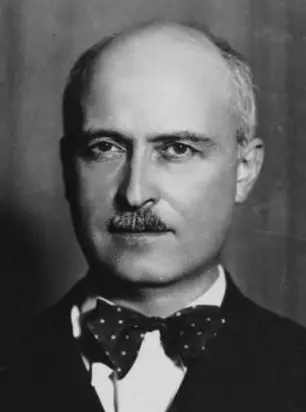
Jacques Ibert (1890 – 1962)
Jacques Ibert was a versatile French composer of the early 20th century, renowned for his eclectic and colorful music, including significant contributions to the flute repertoire.
Early Life and Education
Jacques François Antoine Ibert was born on August 15, 1890, in Paris, France. His musical journey began at an early age, inspired by a culturally rich family environment. He entered the Paris Conservatoire at a young age, where his talent quickly became apparent. His studies were interrupted by World War I, during which he served as a naval officer, but he returned to complete his education after the war.
Career and Compositions
After graduating from the Conservatoire, Ibert’s career flourished. He won the prestigious Prix de Rome on his first attempt in 1919, which afforded him the opportunity to study in Rome at the Villa Medici for several years. His time in Italy was productive and inspired many of his later works. Ibert was known for his eclectic style, which included operas, ballets, orchestral works, chamber music, and solo compositions. Some of his most famous works include the opera “Angélique,” the ballets “Le Chevalier errant,” and orchestral pieces like “Escales” (Ports of Call).
Notable Positions and Later Years
Ibert held several prominent positions throughout his career. He was the director of the Académie de France à Rome from 1937 to 1960, except for a period during World War II when he was removed by the Vichy government due to his association with several Jewish musicians. After the war, he returned to this position and continued to influence the world of classical music until his retirement. Ibert passed away on February 5, 1962, in Paris, leaving behind a legacy of musical innovation and excellence.
Impact on Flute Music
Jacques Ibert’s contributions to flute music are significant, with his compositions for the instrument remaining staples in the flute repertoire. His “Concerto for Flute and Orchestra,” composed in 1934, is particularly renowned for its vibrant and imaginative use of the flute, combining technical challenges with lyrical passages that explore the full expressive range of the instrument. This piece is frequently performed in flute competitions and concerts worldwide.
Ibert’s “Pièce for Solo Flute,” written in 1936, is another critical work, showcasing his ability to create deeply expressive music within a concise format. This piece is beloved for its clarity, elegance, and the lyrical beauty of its melodic lines.
Through these works and others, Ibert significantly impacted how the flute is perceived and played in classical music. His innovative approach to composition and orchestration helped elevate the flute’s role, making it a solo instrument capable of conveying a wide range of emotions and technical prowess. His music continues to inspire and challenge flutists, cementing his place as a pivotal figure in the development of 20th-century flute literature.
Birthday of Jacques Ibert

